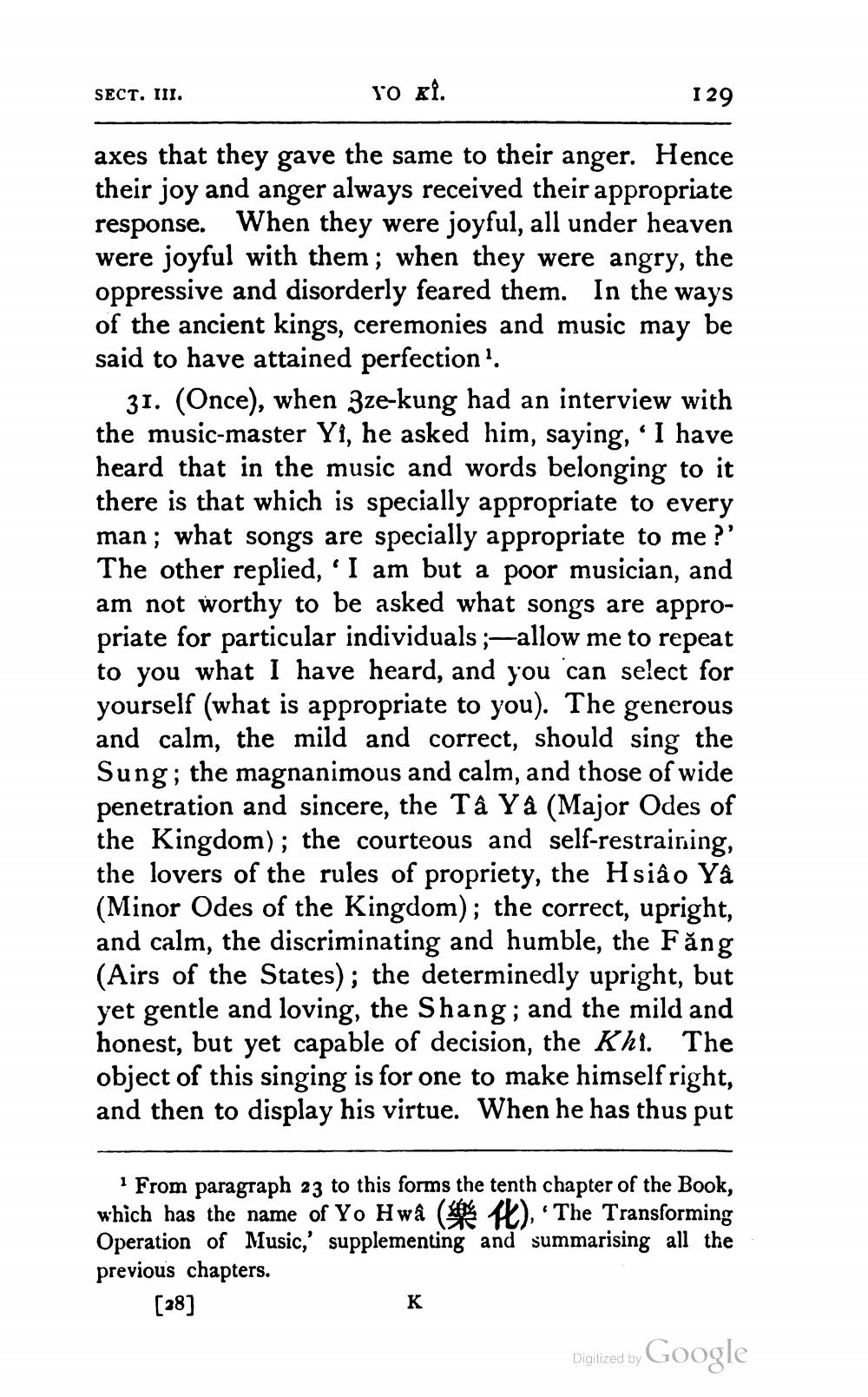________________
SECT. III.
lo xi.
129
axes that they gave the same to their anger. Hence their joy and anger always received their appropriate response. When they were joyful, all under heaven were joyful with them; when they were angry, the oppressive and disorderly feared them. In the ways of the ancient kings, ceremonies and music may be said to have attained perfection'.
31. (Once), when Zze-kung had an interview with the music-master Yi, he asked him, saying, 'I have heard that in the music and words belonging to it there is that which is specially appropriate to every man; what songs are specially appropriate to me?' The other replied, 'I am but a poor musician, and am not worthy to be asked what songs are appropriate for particular individuals ;-allow me to repeat to you what I have heard, and you can select for yourself (what is appropriate to you). The generous and calm, the mild and correct, should sing the Sung; the magnanimous and calm, and those of wide penetration and sincere, the Tâ Yå (Major Odes of the Kingdom); the courteous and self-restraining, the lovers of the rules of propriety, the Hsiâo Ya (Minor Odes of the Kingdom); the correct, upright, and calm, the discriminating and humble, the Făng (Airs of the States); the determinedly upright, but yet gentle and loving, the Shang; and the mild and honest, but yet capable of decision, the Khi. The object of this singing is for one to make himself right, and then to display his virtue. When he has thus put
? From paragraph 23 to this forms the tenth chapter of the Book, which has the name of Yo Hwa ( 1), · The Transforming Operation of Music,' supplementing and summarising all the previous chapters. [28]
K
Digitized by Google




